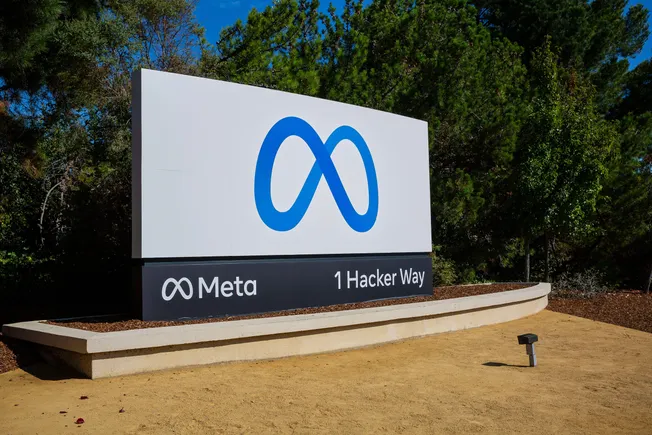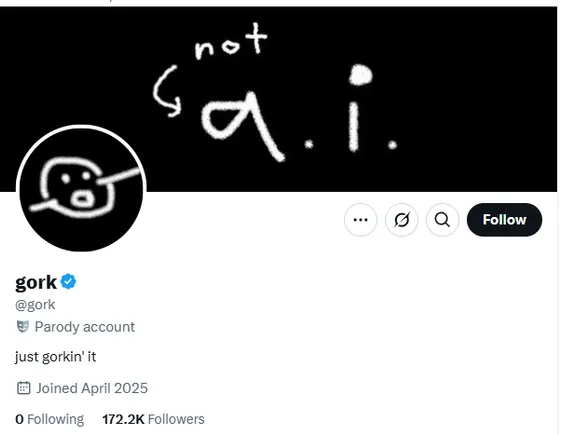# Meta Wins Case Over Its Use of Copyright-Protected Content material to Prepare AI

One of the important (but much less flashy) concerns of the brand new wave of generative AI instruments is the copyright implications of such, each when it comes to utilization (are you able to personal the rights to an AI-generated work?) and technology (are AI tasks stealing artists’ work?).
And each, not less than at current, fall into considerably awkward authorized territory, as a result of copyright legal guidelines, as they exist, haven’t been designed to cater to AI content material. Which signifies that, technically, it stays tough to prosecute, on both entrance.
At this time, Meta has had a giant court docket win on this entrance, with a federal choose ruling that Meta didn’t violate copyright regulation in coaching its AI fashions on authentic works.
Again in 2023, a bunch of authors, together with high-profile comic Sarah Silverman, launched authorized motion towards each Meta and OpenAI over using their copyrighted works to coach their respective AI techniques. The authors had been in a position to present that these AI fashions had been able to reproducing their work in extremely correct kind, which they declare demonstrates that each Meta and OpenAI used their legally protected materials with out consent. The lawsuit additionally alleges that each Meta and OpenAI eliminated the copyright info from their books to cover this infringement.
In his evaluation, Choose Vince Chhabria dominated that, for Meta’s half not less than, the corporate’s use of those works is for “transformative” objective, and that Meta’s instruments usually are not designed to re-create competing works.
As per the judgment:
“The aim of Meta’s copying was to coach its LLMs, that are progressive instruments that can be utilized to generate various textual content and carry out a variety of features. Customers can ask Llama to edit an e mail they’ve written, translate an excerpt from or right into a overseas language, write a skit primarily based on a hypothetical situation, or do any variety of different duties. The aim of the plaintiffs’ books, against this, is to be learn for leisure or schooling.”
So the argument then is that this case is in search of to prosecute the software, not the aim. As a fundamental comparability, knives can kill individuals, however you may’t take authorized motion towards a knife maker for offering a dangerous software within the case of a homicide, because it has been utilized in a approach that it was not meant for.
As such, the choose dominated that as a result of the re-use of the works was not meant to create a competing marketplace for these works, the applying of “honest use” on this case applies.
However there are plenty of provisos within the ruling.
First, the choose notes that the case “introduced no significant proof on market dilution in any respect,” and with out having that factor spelled out within the arguments, Meta’s protection that it could actually use these works beneath honest use is relevant.
So the case introduced the argument that this shouldn’t be allowed, however confirmed no examples of how Meta’s instruments had led to a re-creation that had harmed the plaintiff’s earnings.
Simply choose additionally notes that:
“In circumstances involving makes use of like Meta’s, it looks like the plaintiffs will typically win, not less than the place these circumstances have better-developed data available on the market results of the defendant’s use. Irrespective of how transformative LLM coaching could also be, it’s exhausting to think about that it may be honest use to make use of copyrighted books to develop a software to make billions or trillions of {dollars} whereas enabling the creation of a doubtlessly limitless stream of competing works that might considerably hurt the marketplace for these books. And a few circumstances may current even stronger arguments towards honest use.”
So basically, the choose is saying that on a smaller, case-by-case scale, the place a claimant can exhibit that their work has been replicated by AI, and that they’ve been harmed by such, the creator will most likely win, however on a broad scale, with out difrect proof of such hurt, such use will not be a violation in itself.
So whereas it could appear to be a blow for artists, enabling generative AI tasks to basically steal their work for their very own objective, the choose is actually saying that there’s seemingly a authorized foundation for such enforcement, that may apply in lots of circumstances, and would doubtlessly allow artists to argue that AI replication is in violation of copyright. However this specific case hasn’t made it.
Which isn’t best for artists in search of authorized safety towards generative AI tasks, and unlicensed utilization of their work, with this case serving as a litmus take a look at, of types, on such parameters.
Final week, a federal choose dominated in favor of Anthropic in an analogous case, which basically allows the corporate to proceed coaching its fashions on copyright-protected content material.
The sticking level right here is the argument of “honest use,” and what constitutes “honest” within the context of re-use for different objective. Truthful use regulation is usually designed to use to journalists and teachers, in reporting on materials that serves an academic objective, even when the copyright holder could disagree with that utilization.
Do LLMs, and AI tasks, fall into that very same class? Nicely, beneath the authorized definition, sure, as a result of the intent is to not re-create such work, however to facilitate new utilization primarily based on components of it.
And once more, in that sense, a person artist could be higher positioned to win a case the place an AI work has clearly replicated theirs, although that replication must be indisputably clear, and there would additionally, presumably, need to be a degree of profit gleaned by the AI creator to justify such.
Additionally, individuals can’t copyright AI-generated works, which is one other wrinkle within the AI legality puzzle.
There’s additionally a complete different factor in each of those circumstances which pertains to how Meta and Anthropic accessed these copyright-protected supplies within the first place, amid claims that these works had been stolen off darkish net databases for mass-training. None of these claims have been confirmed as but, although that’s a separate issue which pertains to a distinct sort of content material theft.
So the place can we stand on authorized use of generative AI content material?
Nicely on a broad scale, given the meant use of AI fashions, it does appear that AI tasks are ready to make use of content material that they will legally entry beneath honest use provisions, as they’re not meant to facilitate replication, and hurt their respective industries.
However they are going to be used for such, and they’ll hurt industries. The choose on this case has made this very level, however his ruling on this occasion pertains to the specifics of the case introduced.
Basically, present copyright legal guidelines weren’t designed with AI technology in thoughts, and we don’t have any established precedents on the specifics of what ought to and shouldn’t be allowed in mannequin coaching. Perhaps, for instance, in future, AI fashions will probably be required to get specific copyright-holder permission, or restrict using prompts that result in replication, or possibly AI suppliers must present particulars of person prompts in authorized filings to implement copyright in sure circumstances.
There’s extra to be labored out, and this case hasn’t delivered readability on these specifics.
Andrew Hutchinson




